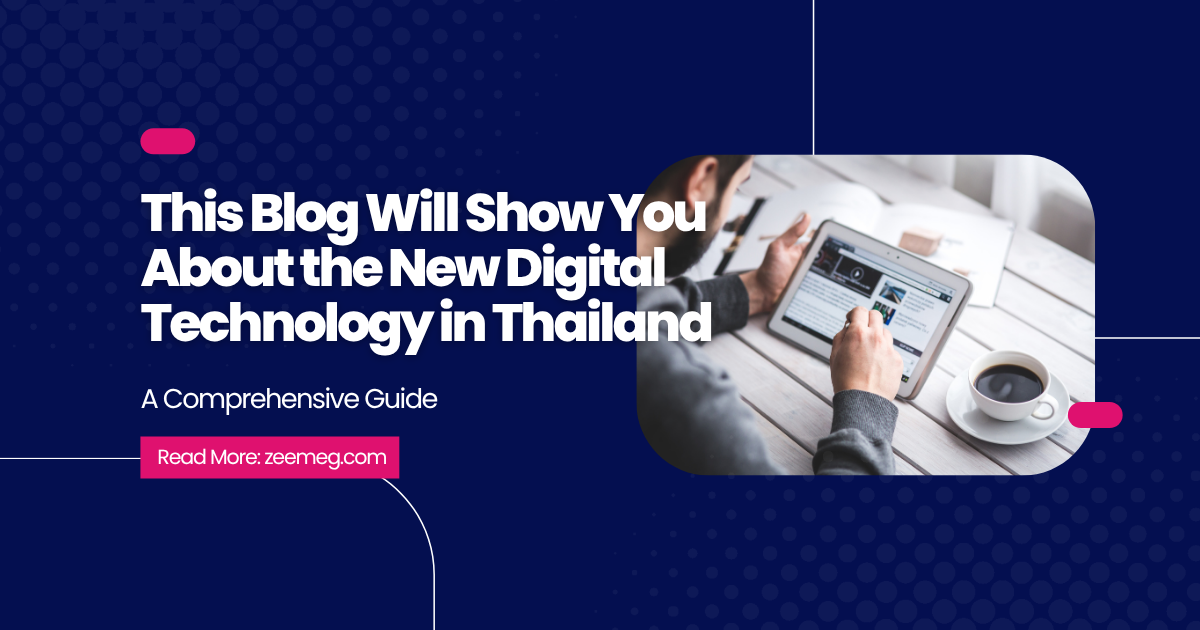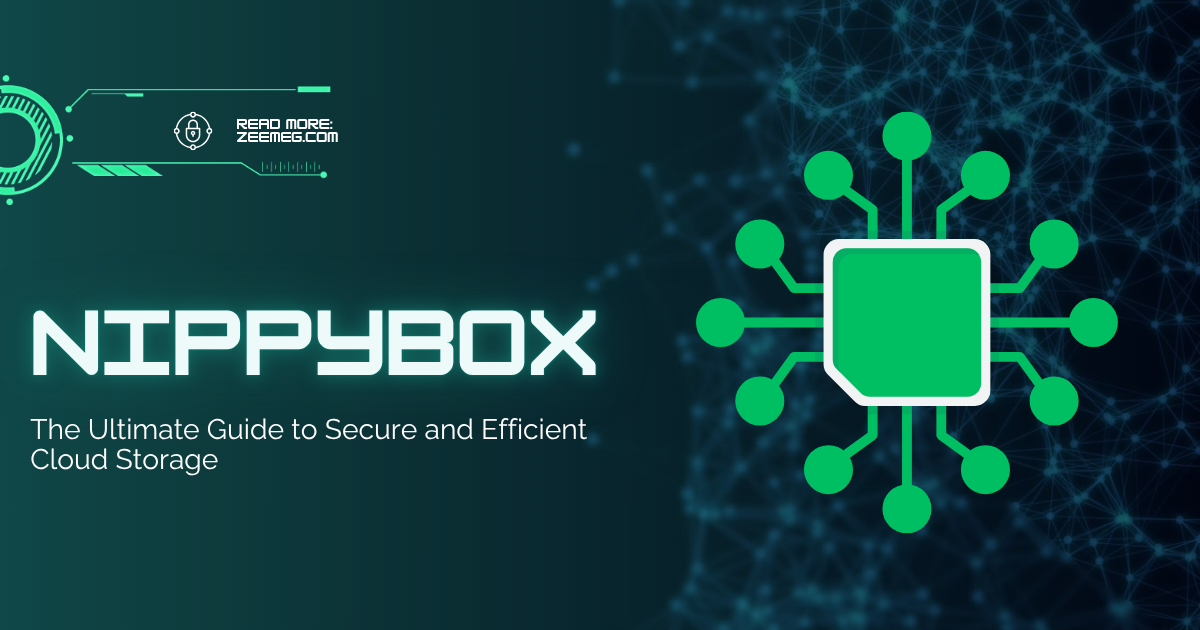Thailand is rapidly transforming into a digital powerhouse in Southeast Asia, embracing cutting-edge technologies that are reshaping its economy, infrastructure, and everyday life. This blog will show you about the new digital technology in Thailand, exploring how innovations like AI, 5G, smart cities, and digital infrastructure are driving this revolution. Whether you are a tech enthusiast, business leader, or simply curious about Thailand’s digital future, this article will provide you with in-depth insights, practical examples, and actionable knowledge to understand and leverage these advancements.
What is Thailand’s Digital Revolution Unveiled?
In recent years, Thailand has embarked on an ambitious journey to become a regional hub for digital innovation. With a national strategy focused on artificial intelligence (AI), 5G connectivity, smart city development, and robust digital infrastructure, the country is positioning itself at the forefront of Southeast Asia’s digital economy. This blog will show you about the new digital technology in Thailand, detailing how these technologies are integrated into various sectors such as transportation, healthcare, finance, and education.
By the end of this article, you will understand the key digital trends shaping Thailand, the challenges and opportunities businesses face, and how you can stay ahead in this dynamic environment. We will also reference insights from fashionisk.com, a notable platform covering digital trends, to enrich your understanding.
The Rise of Smart Cities in Thailand
Smart Cities: Transforming Urban Life
One of the most visible manifestations of digital technology in Thailand is the emergence of smart cities. Cities like Bangkok, Phuket, and Chiang Mai are pioneering the integration of digital solutions to improve urban living. These smart cities leverage technologies such as AI-based monitoring systems, IoT (Internet of Things) sensors, and sustainable infrastructure to enhance transportation, security, and power management.
For example, Bangkok is implementing smart transport management systems that optimize traffic flow and reduce congestion through real-time data analytics. Phuket and Chiang Mai are deploying AI-driven security surveillance to improve public safety. These initiatives not only increase efficiency but also promote sustainability and livability, making cities more attractive for residents and tourists alike2.
Benefits of Smart Cities
- Improved public services: Faster, data-driven responses to urban challenges.
- Sustainability: Reduced energy consumption and carbon footprint.
- Enhanced safety: AI-powered surveillance and emergency response.
- Economic growth: Attraction of tech investments and startups.
5G Connectivity: The Backbone of Thailand’s Digital Future
Revolutionizing Communication and Business
The rollout of 5G networks across Thailand is a game-changer. With ultra-fast internet speeds, low latency, and massive device connectivity, 5G is enabling innovations across industries. From e-commerce platforms to telemedicine, 5G enhances user experiences and operational efficiency.
Thailand currently boasts over 99.5 million cellular connections, equivalent to 139% of the population, with 100% broadband connectivity through 3G, 4G, or 5G networks. This widespread adoption fuels digital services such as online education, digital banking, and remote work, making them more accessible and reliable.
Impact on Key Sectors
- Healthcare: Remote diagnostics and AI-driven patient monitoring.
- Education: Seamless online learning with interactive tools.
- Retail: Enhanced e-commerce with AR/VR experiences.
- Entertainment: High-quality streaming and gaming.
Artificial Intelligence (AI) and Digital Innovation
Thailand’s AI Ambitions
Thailand is aggressively pursuing AI to boost its digital economy. The government’s three-pronged strategy focuses on strengthening digital infrastructure, creating a secure digital environment, and developing AI talent through education and partnerships with tech giants like Huawei and Chulalongkorn University.
AI is already transforming sectors such as finance, where machine learning algorithms detect fraud, and retail, where personalized customer experiences are delivered through AI-driven analytics1. Businesses adopting AI gain a competitive edge by making data-driven decisions and automating routine tasks.
Challenges and Ethical Considerations
Despite the promise, AI adoption faces hurdles including data privacy concerns, regulatory compliance, and a shortage of skilled professionals. Thailand is addressing these through regulatory frameworks and talent development programs to ensure responsible and effective AI use.
Digital Economy Growth and Opportunities
Rapid Expansion and Market Potential
Thailand’s digital economy is projected to grow by 7.3% in 2025, reflecting robust demand for digital services and infrastructure. With over 65.4 million internet users and 51 million social media identities, digital engagement is high, creating fertile ground for innovation and entrepreneurship.
Supporting Ecosystem
Platforms like fashionisk.com provide valuable insights into digital trends and consumer behavior, helping businesses tailor their strategies to the Thai market. The collaboration between government, academia, and private sectors fosters a vibrant ecosystem for startups and established companies alike.
Practical Tips for Leveraging New Digital Technologies in Thailand
For Businesses
- Invest in AI and data analytics: Use AI tools for customer insights and operational efficiency.
- Adopt 5G-enabled solutions: Enhance connectivity for remote work and digital services.
- Engage with smart city initiatives: Collaborate with local governments on sustainability projects.
- Focus on cybersecurity: Build resilient frameworks to protect data and comply with regulations.
For Individuals
- Stay updated on digital skills: Participate in online courses and AI training programs.
- Utilize digital services: Explore telemedicine, e-learning, and digital banking for convenience.
- Engage with digital communities: Follow platforms like fashionisk.com for trends and opportunities.
Common Misconceptions About Digital Technology in Thailand
- Myth: Digital transformation is only for big cities.
Reality: Smaller cities like Chiang Mai are also rapidly adopting smart technologies. - Myth: 5G is just about faster internet.
Reality: 5G enables new applications like IoT, AI integration, and smart infrastructure. - Myth: AI will replace all jobs.
Reality: AI augments human capabilities and creates new job opportunities, especially in tech sectors.
Summary
This blog has shown you about the new digital technology in Thailand, highlighting how smart cities, 5G connectivity, AI, and a growing digital economy are transforming the nation. Thailand’s strategic focus on innovation, infrastructure, and talent development positions it as a digital leader in Southeast Asia.
For businesses and individuals alike, understanding and embracing these technologies is essential to thrive in this evolving landscape. Stay informed, invest in digital skills, and engage with emerging platforms like fashionisk.com to maximize your opportunities in Thailand’s digital revolution.
FAQs
Q1: What are the key digital technologies driving Thailand’s transformation?
A1: The main technologies include AI, 5G connectivity, IoT, smart city infrastructure, and blockchain, all contributing to sectors like healthcare, finance, and urban management.
Q2: How advanced is Thailand’s 5G network?
A2: Thailand has widespread 5G coverage with 100% broadband mobile connections, supporting high-speed internet and enabling new digital applications across industries.
Q3: What role does AI play in Thailand’s economy?
A3: AI is integral to fraud detection in finance, personalized retail experiences, data-driven decision-making, and is a core part of the government’s digital strategy to boost economic growth.
Q4: Are smart cities only in Bangkok?
A4: No, smart city initiatives are active in Bangkok, Phuket, Chiang Mai, and other cities, focusing on transportation, security, and sustainable infrastructure.
Q5: How can businesses benefit from Thailand’s digital transformation?
A5: By adopting AI, leveraging 5G, engaging with smart city projects, and strengthening cybersecurity, businesses can improve efficiency, customer engagement, and competitiveness.
Q6: Where can I find more insights about digital trends in Thailand?
A6: Platforms like fashionisk.com offer detailed analysis and updates on digital technology trends and consumer behavior in Thailand.
Q7: What challenges does Thailand face in digital technology adoption?
A7: Challenges include data privacy, regulatory compliance, talent shortages, and the need for ethical AI use, which are being addressed through government policies and education.
Read More: Fashionisk .com | MyLawyer360 | NippyBox | Crypto 30x .com



